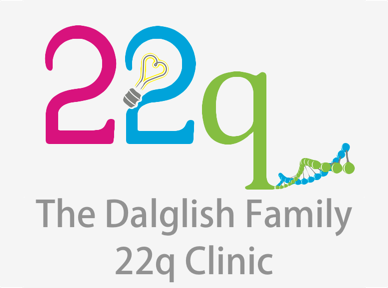Strengths and challenges that the students may face in the school system
The vast majority of individuals with 22q11.2DS will require some type of specialized educational service as they progress through the school system. Students will often demonstrate strengths and may face challenges in one or more of the following areas:
Learning
Intellectual and developmental disabilities and/or learning difficulties
- Most students are in the borderline IQ range (about IQ 70 to 80). Intellectual disability is common, and can vary from mild to profound (rare).
Difficulties in mathematics/arithmetic, abstract reasoning, reading comprehension, etc.
Problems with working memory, relative strengths in rote memory and recognition
Relative strengths in verbal learning and verbal recognition
Better experiential than auditory learners
Functional abilities are determined mainly by intellectual level, and to a lesser extent, by the presence or absence of a psychotic illness like schizophrenia. However, functioning can vary greatly between individuals, even those with similar IQ
Attentional difficulties
References
- De Smedt B, Swillen A, Verschaffel L, Ghesquière P. (2009) Mathematical learning disabilities in children with 22q11.2 deletion syndrome: a review. Dev Disabil Res Rev. 15(1):4-10
- Kiley-Brabeck K, Sobin C (2006) Social Skills and Executive Function Deficits in Children With the 22q11 Deletion Syndrome. Appl Neuropsychol. 13(4): 258–268
- Shashi V, Veerapandiyan A, Schoch K, Kwapil T, Keshavan M, Ip E, Hooper S. (2012) Social skills and associated psychopathology in children with chromosome 22q11.2 deletion syndrome: implications for interventions. J Intellect Disabil Res. 56(9):865-78
- Swillen A, Vandeputte L, Cracco J, Maes B, Ghesquière P, Devriendt K, Fryns JP. (1999) Neuropsychological, Learning and Psychosocial Profile of Primary School Aged Children with the Velo-Cardio-Facial Syndrome (22q11 Deletion): Evidence for a Nonverbal Learning Disability? Child Neuropsychol. 5(4):230-41.
- Woodin M, Wang PP, Aleman D, McDonald-McGinn D, Zackai E, Moss E. (2001) Neuropsychological profile of children and adolescents with the 22q11.2 microdeletion. Genet Med. 3(1):34-9.

Social skills
Difficulties with:
Social skills acquisition – ability to share, express needs, take turns, etc.
Determining social norms and responding appropriately to others
Scheduling and managing personal responsibilities
[Return to top]